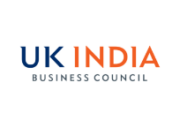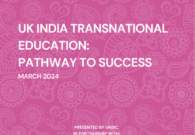UKIBC Virtual Roundtable with BSI Group “Evolving food safety trends and means to establish consumer confidence”
One year ago, almost nobody could have imagined how dramatically life would change in 2020. What we eat, how we purchase it, and how and where we prepare and eat it are among the most far-reaching impacts people have experienced because of the COVID-19 pandemic.
As per an international industry survey, 80% of the global population said they had experienced at least some change in their eating or food preparation habits because of COVID-19. Despite there being no evidence of transmission of COVID-19 from food or food packaging, predicted food safety will continue to be front of mind in 2021. The same international survey showed that coronavirus exposure and food contamination remain among the most common food safety worries. The risk of COVID-19 when shopping for food or dining out was their top food-related concern.
The joint virtual session by BSI Group and UKIBC on the evolving food safety trends and means to establish consumer confidence was an opportune engagement to discuss food safety trends, emerging issues, trust between producers and suppliers, environmental sustainability, perception of Indian products in the market, among others, with an extended panel of key Indian food and drink stakeholders.
FOOD AND DRINK MARKET OVERVIEW AND MEGATRENDS BY BSI GROUP
Mr David Horlock, Managing Director, Global Food and Retail Supply Chain, BSI Group initiated the session by sharing a presentation on the food and drink market mega trends. David highlighted the services into food safety certifications, emerging issues in plastic and packaging sustainability, regenerative agri, carbon neutrality, clean energy, waste management, food safety culture and more.
He outlined important attributes of consumers’ trust, best practice standards for environmental sustainability, food and retail supply chain hinderances and prospective solutions by BSI working towards sustainability.
He also shared case study on ‘how the Scottish Bee company developed a standard for their customer promise, put a Global Food Safety Initiative quality System in place and a Trustmark like BSI Kitemark and grew sales by 300%.
PANEL DISCUSSION ON SOCIAL RESPONSIBILITY AND ENVIRONMENTAL SUSTAINABILITY IN THE FOOD AND DRINK INDUSTRY, MODERATED BY UKIBC
Subsequently, we had an excellent panel discussion moderated by Ms Shubhi Mishra, Head of Food and Drink Policy, Advocacy and Trade Promotion, UKIBC, and joined by leading food and drink companies’ dignitaries as panellists, who shared the following updates on:
- Current regulatory trends and consumer confidence exercise practiced by various F&D stakeholders
- Disruptions in demand and supply chain caused by the COVID 19 pandemic
- The need to build confidence amongst international and Indian consumers alike especially in the current unprecedented timelines, and standards and certifications used to showcase quality
- Challenges and setbacks faced by the Indian Food and Drink companies, and subsequent regulatory support by the Government of India
- How to gain competitive advantage through the changing dynamics of Indian Food Safety and Standards
- How Indian quality standards compare to global standards/certifications, and Indian food products perception in the global market
- Incorporating environmental sustainability in business operations to work towards the UN Sustainable Development Goals (SDGs)
- Food fraud risks in the ecosystem and steps taken by the companies to transcend
- Importance of product certification to demonstrate brand assurance to the end consumer
Our esteemed panelists from a diverse food and drink industry background shared their experiences of how consumers are currently focused on trying to stay healthy — and that desire seeped into their food choices. The pandemic has made more people interested in foods that benefit their immunity, and this trend will continue to drive the market for a longer time.
Key takeaways from the panel discussion:
- Product developers are learning from consumer demand. From olive oil, honey, coconut water, cold press juices to vegan and organic, healthful foods have all been trending with sales surging by 9-10% YOY. Consumers are focusing on healthy snacking by side lining conventional staple food items.
- Small scale industries and tying up with FMCG multi nationals to manage supply chain disruptions and fill the gap of supply scarcity, making basic availability needs possible. The use of virtual and digital tools for global, regional, and local supply chain models significantly helped in fast responsiveness and cost effectiveness. The speed and the level of commitment are driven by consumer trust, B2B requirements, and financial constraints.
- India is a leading fruit and vegetable basket in the world with a sizeable portion being exported globally every year. The pandemic has terribly impacted the postharvest supply chain, transportation, retail marketing and trade of fruits and vegetables. Yet, the industry is swiftly recovering from losses while ensuring the best quality standards and certifications for the trade happening domestically and globally.
- Sustainable cultivation aiming to reduce its carbon footprint and address environmental sustainability has been a key focus area by the food and drink companies in India. This has also supported India’s objectives towards the UN Sustainable Development Goals.
- In order to maintain high standards in procurement, production and packaging, notable certifications are necessary to gain consumers confidence. Quality standards need to be incorporated and monitored regularly for safety, hygiene, transportation, and marketing of both fresh produce and packaged processed food items.
- The standards must satisfy everyone, from grower to consumer, and have to secure primarily the four aspects, namely quality parameters, safety measurements, sales appeal and shelf life.
- High quality graphics are increasingly being used to boost sales appeal. Multi-colour printing, distinctive lettering, and logos are trending exponentially. In the context of shelf life, modern produce packaging should be custom engineered for each commodity to extend shelf life and reduce waste.
- Beekeeping has been one of India’s oldest practices, which makes India one of the world’s most prominent honey markets, generating intense competition in terms of innovation and quality. In addition, the demand for honey in India is growing due to rising customer preferences for natural and healthier alternatives to artificial sweeteners, greater awareness of the benefits of honey, as well as the growing popularity of various honey flavours. In the pandemic, due to its proven antibacterial, anti-microbial, and anti-inflammatory properties, honey was anticipated to gain popularity in food and non-food applications throughout the world, which it rightfully did. The processing facilities for such products need to be complaint with international standards and certifications.
- The food and drink companies in India adhere to multiple food and health certifications such as ISO 9001, ISO 22000, FSSC 22000, BRCG certification for HACCP (Hazard Analysis and Critical Control), Halal Certification, Kosher Certification, to name a few.
- Some key challenges faced by the food and drink companies, while practicing the consumer’s confidence building exercises, are the frequent changes in regulatory framework, unfair competition from counterfeits, and lack of robust system to address the complaints at multiple levels.
- In agriculture, there is a need to adapt a value chain approach characterised by a market that enables aggregation and transportation from village level to a wholesale market of choice. There is a need to build on the available infrastructure to provide the two following services viz. direct marketing between producers and consumers and aggregation platforms for the small clusters of farmers.
The panel discussion was joined by:
- Mr David Horlock, Managing Director, Global Food and Retail Supply Chain, British Standards Institution (BSI)
- Mr Richard Werran, Regional Director, UK, Eire, Continental Europe and IMETA – Food and Retail Supply Chain, BSI
- Mr Amit Anand, Managing Director, Apis India limited
- Wing Commander Sumit Chaudhary (Retd), General Manager Federal, Diageo India
- Ms Dinika Bhatia, Founder and CEO, DRB Foods
- Mr Nitin Agrawal, Founder and Promoter, Euro Fruits Private Limited
- Captain Ashima Agrawal, Head – Organic Foods, Fabindia Overseas Private Limited
- Mr Vikas Nahar, Founder and Director, Happilo International
- Mr Shaishav Mittal, Founder and CEO, Lovely Bake Studio
- Mr Pravin Kumar Singh, Lead – Public Policy and Advocacy, Marico Limited
- Mr Mihir Mohanta, General Manager Supply Chain, Mother Dairy Fruit & Vegetable Pvt Ltd
- Mr Nitin Shankar Nagrale, CEO India and Emerging Markets, Quality New Zealand
- Mr Avinash Tripathi, Vice President, Concept Head – Premium Grocery, Reliance Retail
- Mr Deepak Kucheriya, Head of Modern Trade, Wingreens Farms
After a very insightful panel discussion, Mr Richard Werran, Regional Director Food and Retail Supply Chain – UK, Eire, Central Europe and IMETA, BSI Group gave a presentation on BSI: The Essential Enabler, outlining the standards, training, testing and assessment services by BSI Group in India.
Throughout the discussion, there was much said on the topic of ensuring the quality standards and certifications and how the pandemic has affected the need for each.
Many thanks to all who participated in our virtual roundtable.







